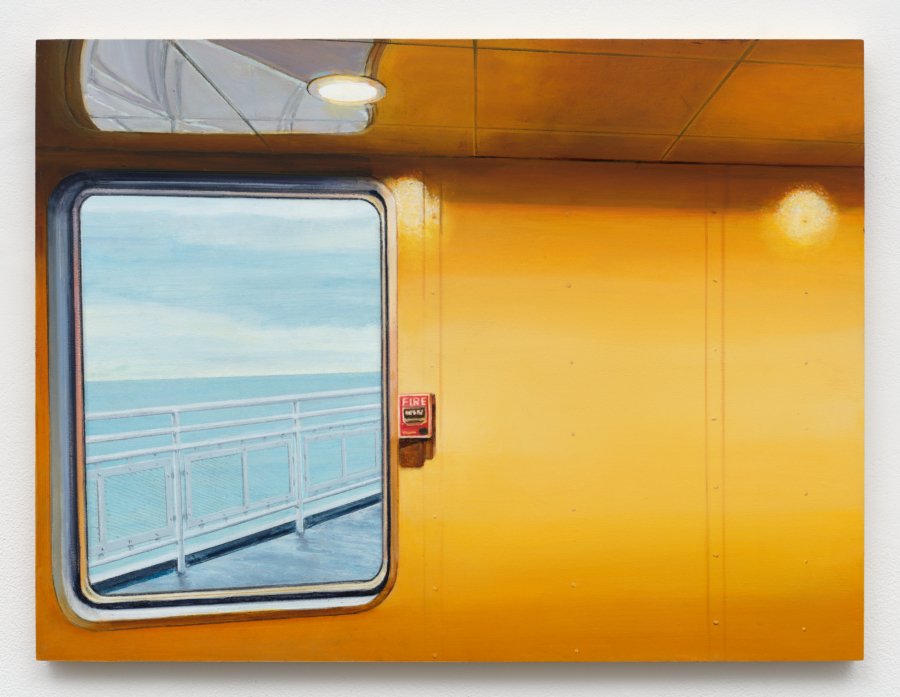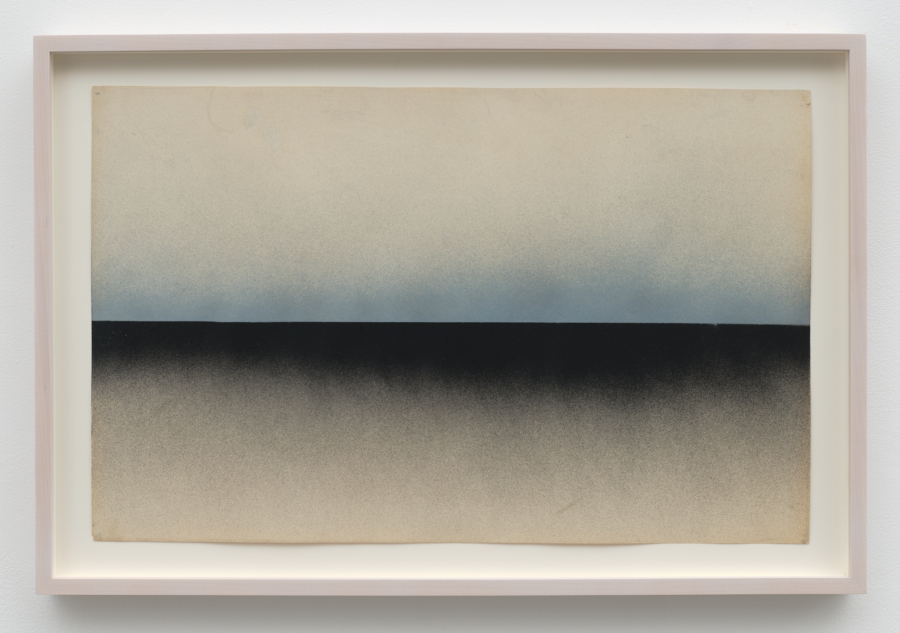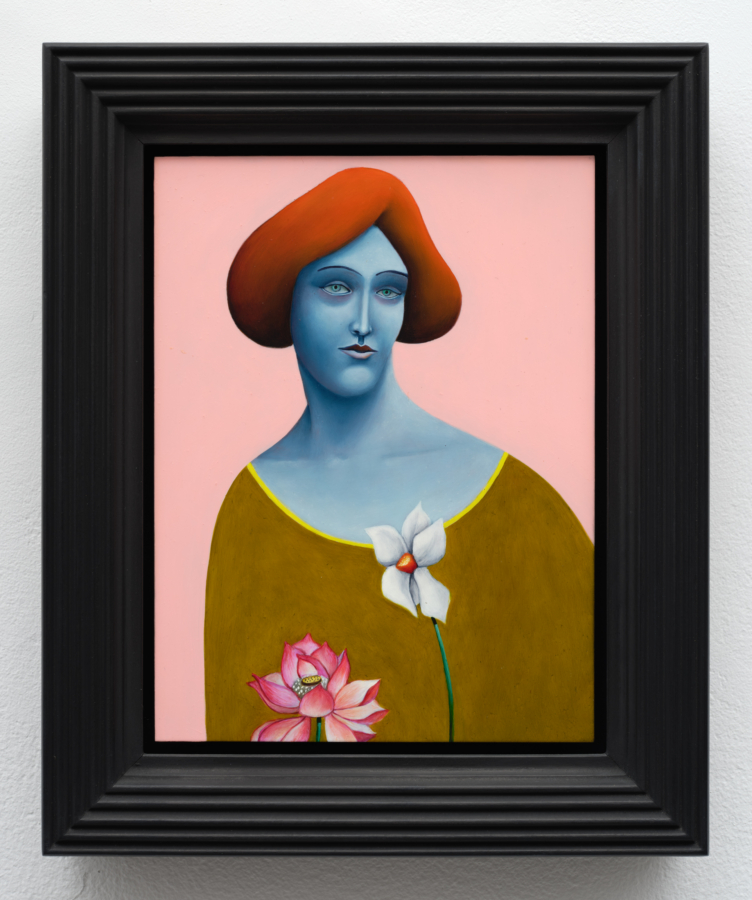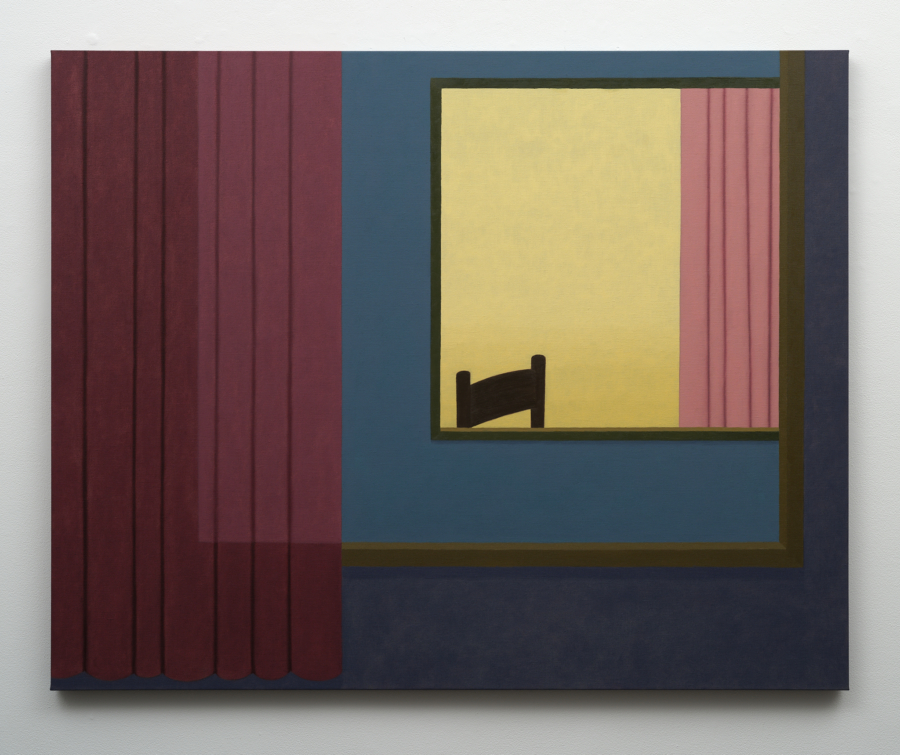December 4, 2019
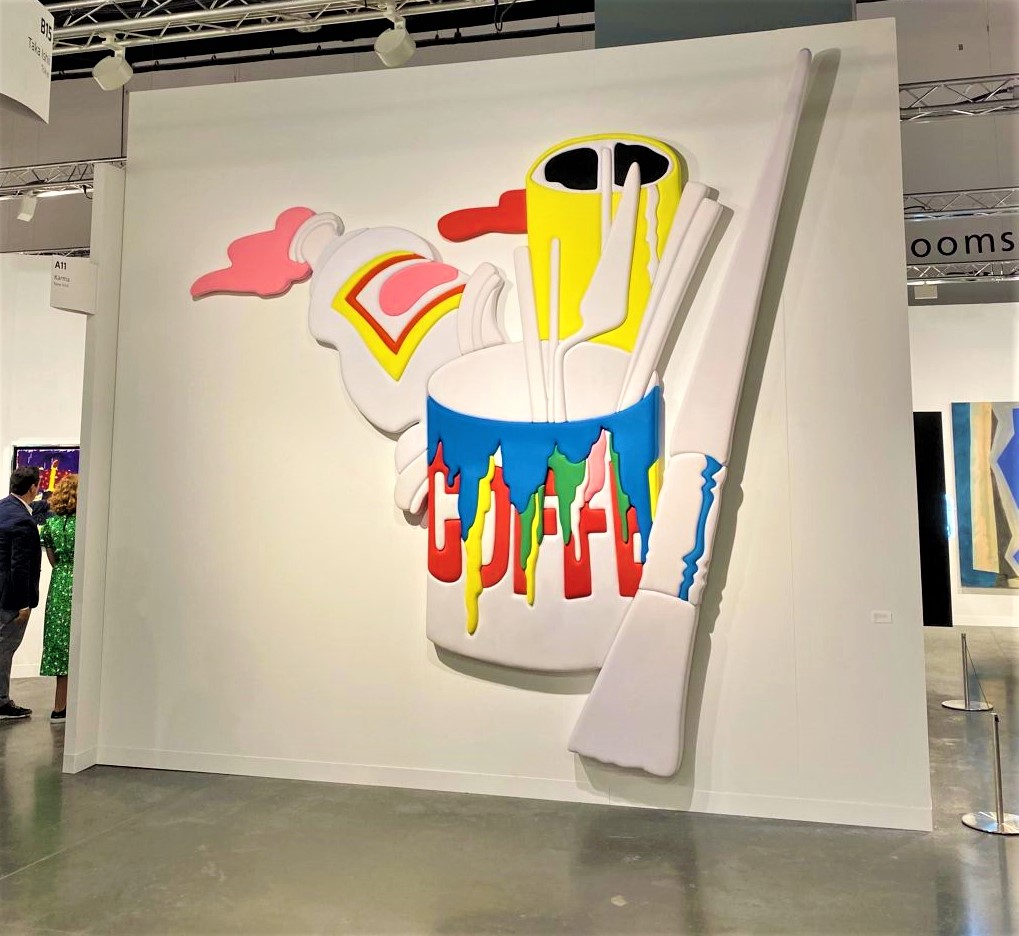
A work by Alex Da Corte in the Karma booth. Photo Nate Freeman.
The parent company of the Art Basel fairs has been through its ups and downs recently. This year in Miami Beach, however, there is little outward sign of management discord.
Some collectors said that the action felt more relaxed and that galleries were playing it
safe. Still, VIP visitors flooded the preview day and the fair unveiled a big new initiative, its sweeping new “Meridians” section dedicated to elaborate, large-scale art installations in the second floor grand ballroom of the convention center. By most accounts, sales were off to a strong, though hardly frenzied, start right out of the gate.
In years past, Tina Kim Gallery typically shared a booth with Kukje, her family’s gallery. This year marked the first time her eponymous gallery made a solo outing at Art Basel Miami Beach. Within the first few hours, she said she was pleased with sale results. Among the works that found buyers today: four pieces by up-and-coming South Korean artist Suki Seokyeong Kang, at prices ranging from $10,000 to $20,000.
Kim also sold a large Kim Tschang-Yeul work for $320,000. “This is my first time exhibiting solo at the fair, so it is a very important moment for me and the gallery,” the dealer told Artnet News. “We have developed such an important roster of international artists from varying generations. It’s wonderful to be able to introduce them to new audiences here.”
Lehmann Maupin was also quick to boast results. “We’ve had a very strong first day with tremendous interest in Teresita Fernández and Cecilia Vicuña and important placements for both, among other artists,” said gallery representative Sarah Levine. Fernández also has a show of her work, “Elemental,” currently on view at the Pérez Art Museum Miami, which cannot hurt.
The gallery reported that her Seep Sun (Fence) (2019), Diamond Line (2011), Dark Earth (Leonids) (2019), and Rise and Fall #15 (2017), had sold together “for more than $1 million.”
Also in the first few hours of the fair, Los Angeles-based Kohn Gallery placed works by emerging artists Caroline Kent, Sophia Narrett, and Chiffon Thomas in the collections of three major US institutions.
This marked the first time that these three artists, new to the gallery’s program, have exhibited works at Art Basel Miami Beach, according to the gallery. As to the details of the acquisitions, the gallery offered only the following hints: the large-scale painting by Kent was going to a “major institution in Chicago;” the new embroidery work by Narrett found
a home with a “major institution in the Northeast;” and a mixed-media work by Thomas caught the fancy of a “major US institution on the East Coast.”
The gallery further placed works by Los Angeles artist Lita Albuquerque in the opening hours of the fair at prices ranging from $35,000 to $75,000 each.
In addition, the gallery placed two new Heidi Hahn paintings with private museums in China and Thailand. The gallery claimed that all works sold during the opening hours was priced in the range between $15,000 and $75,000.
Acquavella Galleries reported sales including a small Wayne Thiebaud still life of two bottles, for $900,000, and a piece by Tom Sachs, for $225,000.
Paula Cooper Gallery sold Cecily Brown’s oil-on-linen Faeriefeller (2019) to a Chinese museum. Hauser & Wirth, meanwhile, recorded one of the biggest sales of the opening day when David Hammons’s Untitled (Silver Tapesty) (2008) sold for $2.4 million in the opening hours, capping a year in which Hauser & Wirth hosted the largest Hammons retrospective in years at its Los Angeles outpost.
“As a gallery you can’t represent Hammons, but we have an ongoing relationship, and it’s something we want to build on,” said gallery partner Marc Payot. “We truly and deeply believe in his importance.”
Other sales at the Hauser & Wirth booth included Rashid Johnson’s Untitled Escape Collage (2019) which sold for $595,000, and the recently passed Ed Clark’s Untitled (2001), which sold for $475,000. There were also sales of work by Nicole Eisenmann and Nicolas Party, two in-demand artists who recently joined the Hauser & Wirth stable.
“We really want to connect the new artists with us. By having a piece here, you cement that connection,” Payot explained. “It’s not really about placing the piece here, as that’s not very difficult. It’s more about working for Nicole to introduce her as with the gallery.”
Among the collectors and dealers who flocked to the newly renovated Miami Beach convention center, a small army of art advisors was there to purchase on behalf of American clients. Lisa Schiff said that she had to juggle six different clients on the opening day, and purchased work by artists including Ed Clark, Michael Williams, and Alex Da Corte, who was showing new work at the booth of the New York gallery Karma. She was also buying on behalf of collectors who were using her as their proxy to purchase works despite not being there themselves.
“We sold to someone in Belfast who’s not here, we sold to someone in Boston who’s not here,” Schiff said. “It’s hard to manage six people at one time—and I have a team of people, thank god. But nothing compares to Basel Miami. If there’s only two fairs I’m going to, it’s Basel Miami and Basel in Switzerland.
Zwirner had a successful first day as well, as a Bridget Riley painting sold for $1.5 million. The mega-gallery also managed to find two buyers for the $450,000 new paintings by Oscar Murillo, who is in the news as one of the four artists who will share the 2019 Turner Prize, after the nominees banded together to demand that they be awarded together.
A few booths away, David Kordansky sold works by Sam Gilliam for $900,000 and $875,000, as well as a Jonas Wood for $750,000.
At the Pace Gallery booth, Marc Glimcher reported that more than 20 works had been placed just in the fair’s opening minutes, including two works by Robert Rauschenberg that sold for almost $1 million, a new Loie Hollowell painting that was purchased for $250,000 as a promised gift to LACMA, and two works by Sam Gilliam (clearly an in-demand artist), both for $180,000 and both going to collectors in Washington, D.C., the artist’s hometown.
Glimcher added that despite whatever turbulence might exist behind the scenes with its parent company, Art Basel’s Miami Beach edition remains the foremost place to sell work to American collectors. Nothing, he hypothesized, is going to affect its place on the art fair calendar.
“People get into the rhythm and this is the rhythm—it’s hard to break the habit of a fair like this,” he said. “We’ve all complained about the fairs. I, as you know, complain about art fairs all the time. But nobody has blinked, nobody has said, ‘We’re out of here.’ We saw a little bit of that with Frieze New York, but Art Basel has created a major international fair.”
Like many others, Glimcher brought up the enduring appeal of Miami’s mild climates, even after Thanksgiving.
“Miami is a very nice place to come after a crazy week with your family,” Glimcher said. “How many people have a crazy week fighting with their crazy uncle and are like, ‘Send me to the beach.’”
